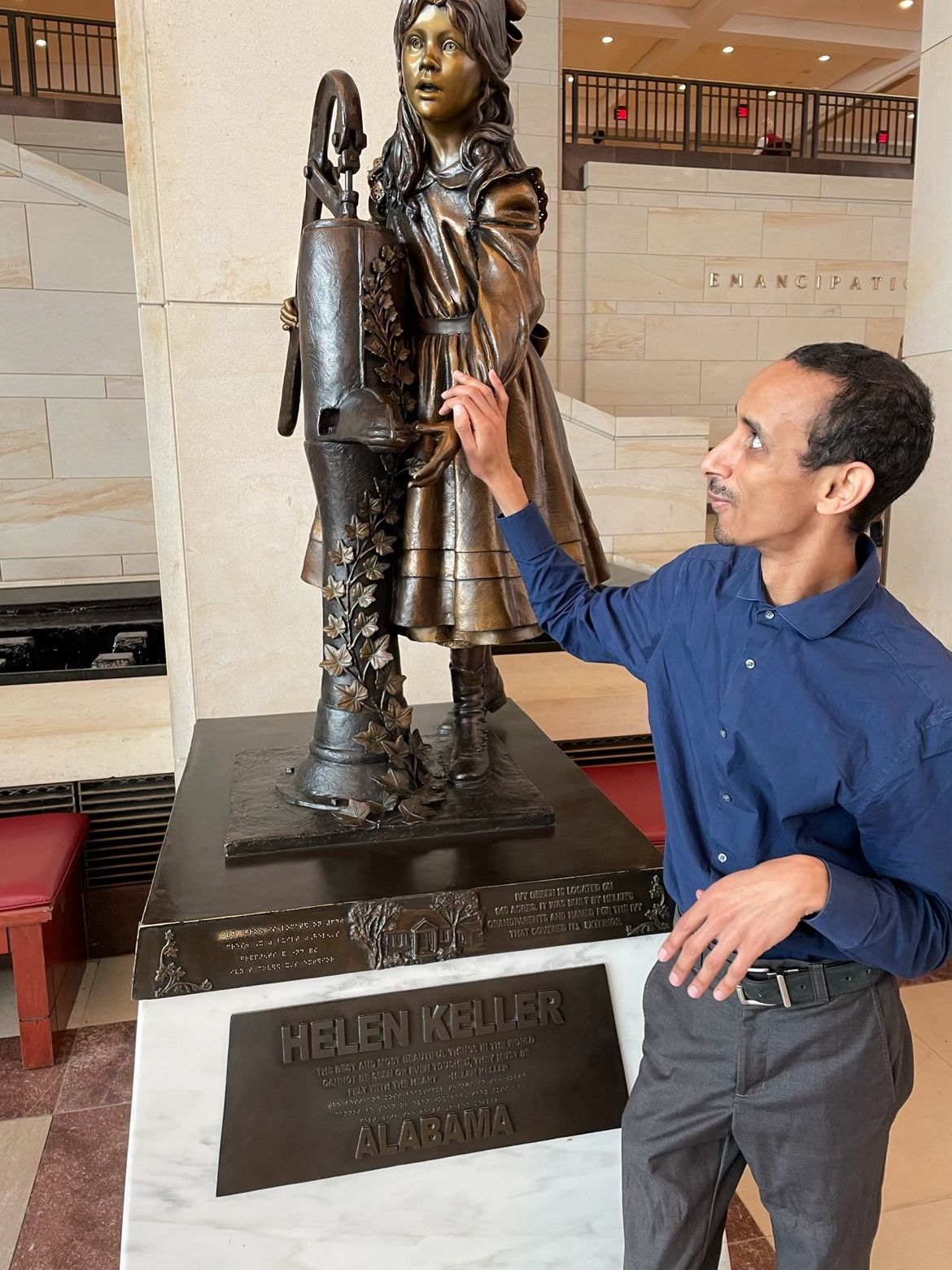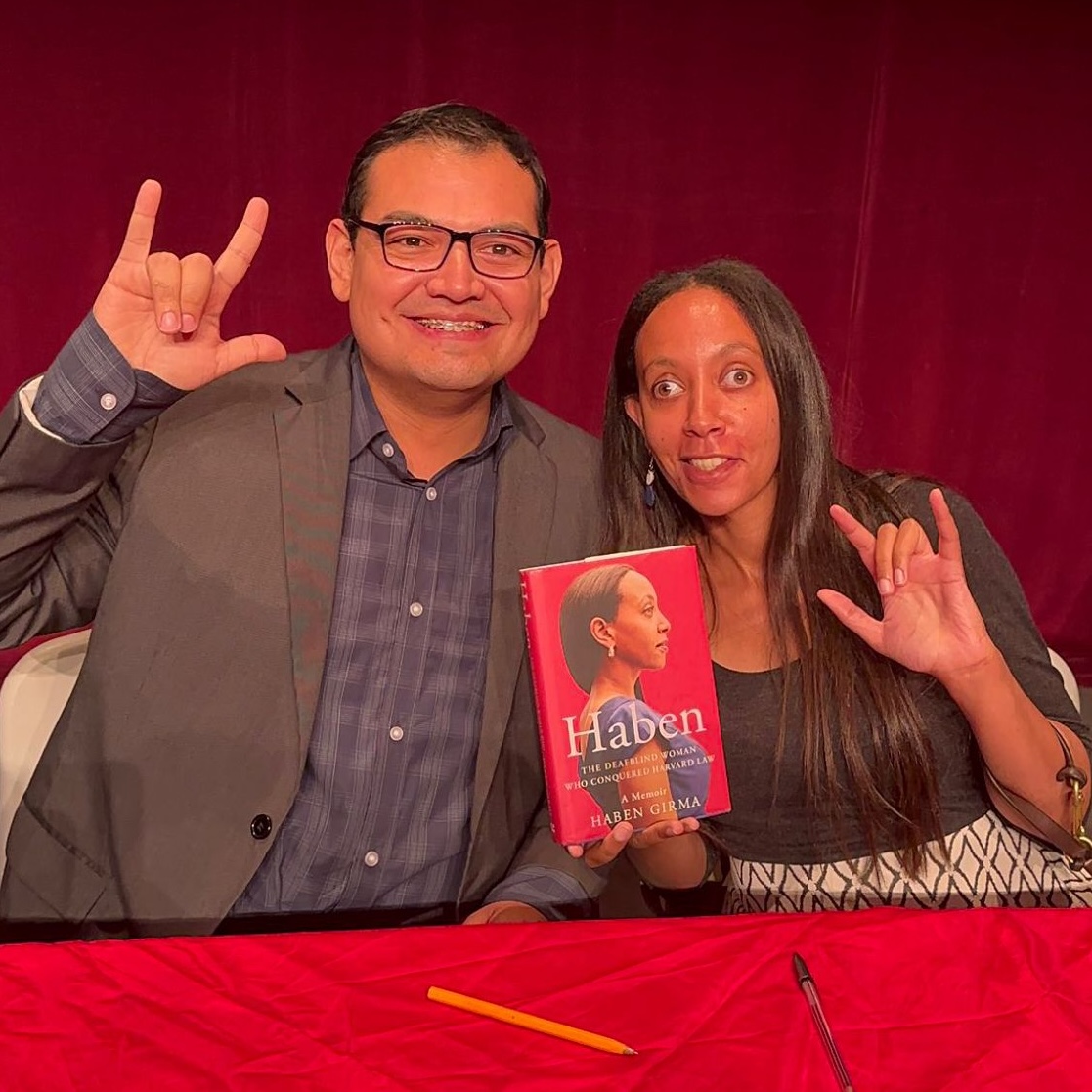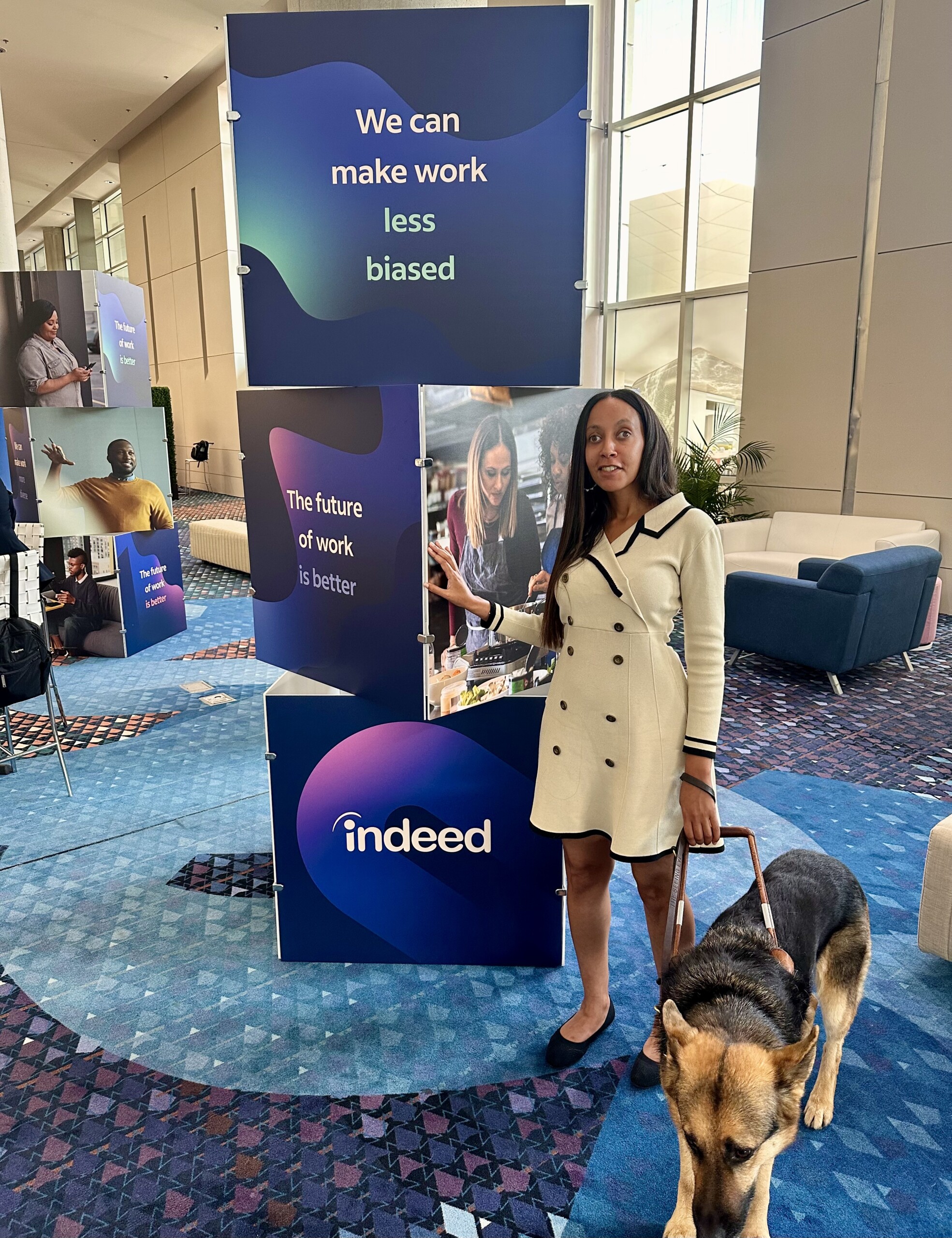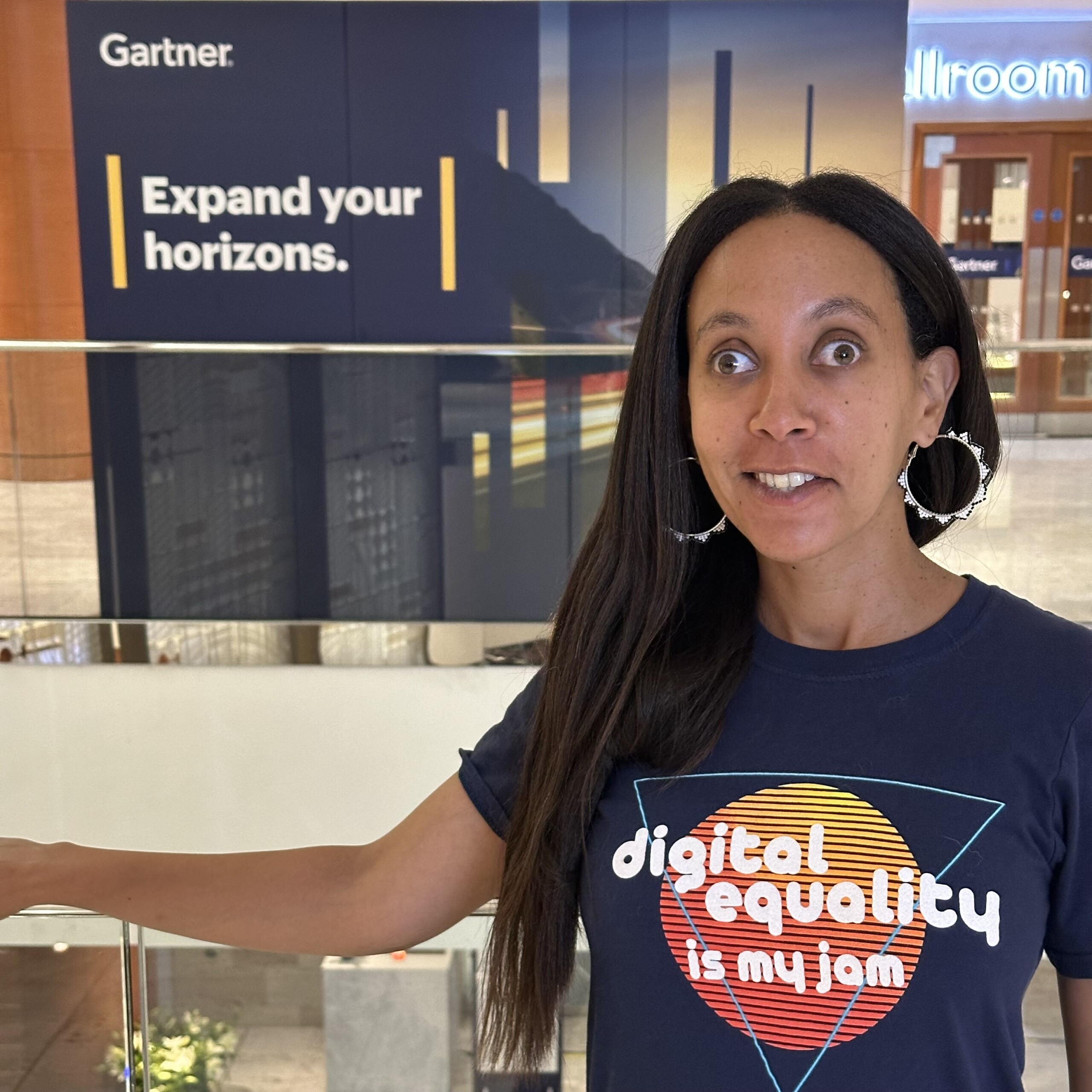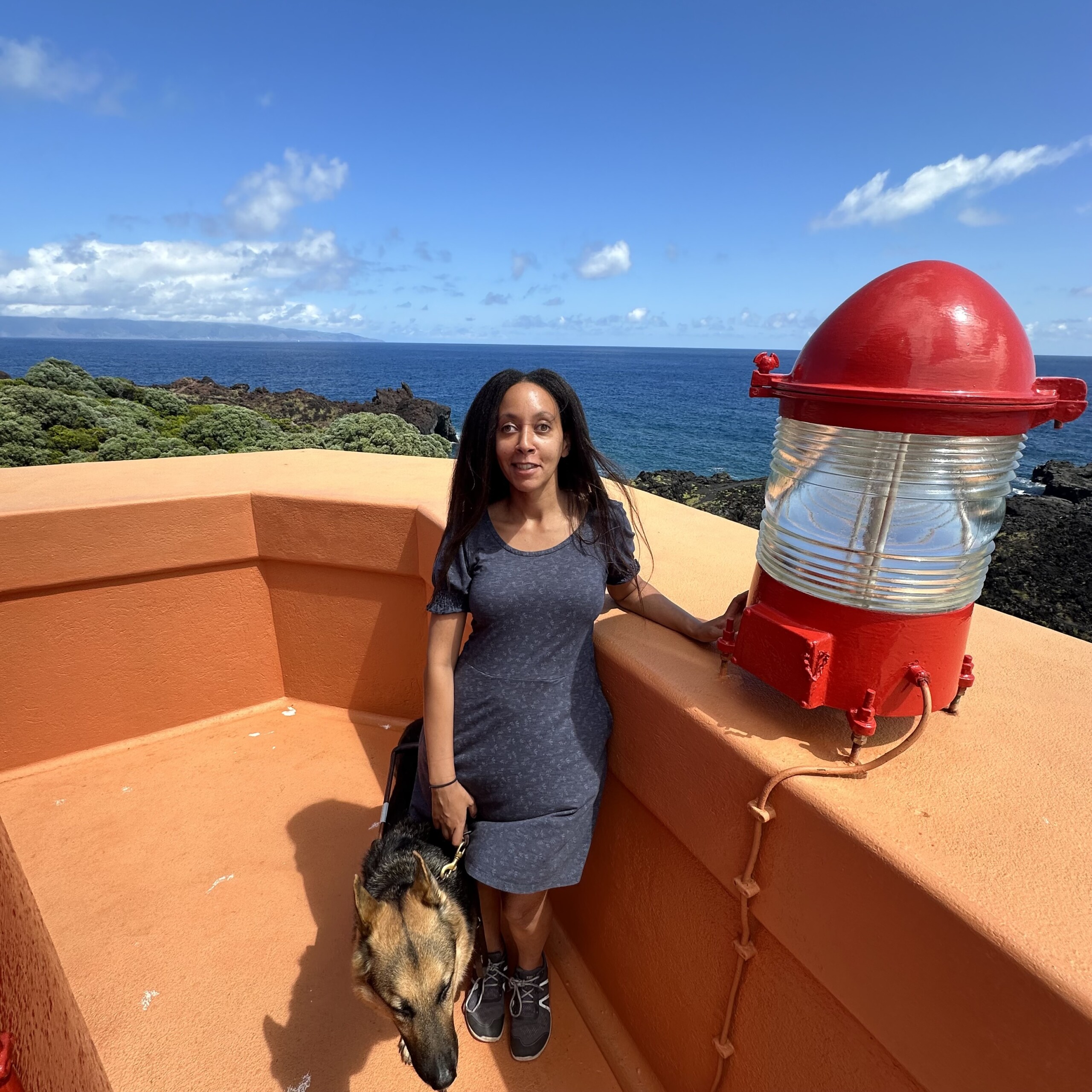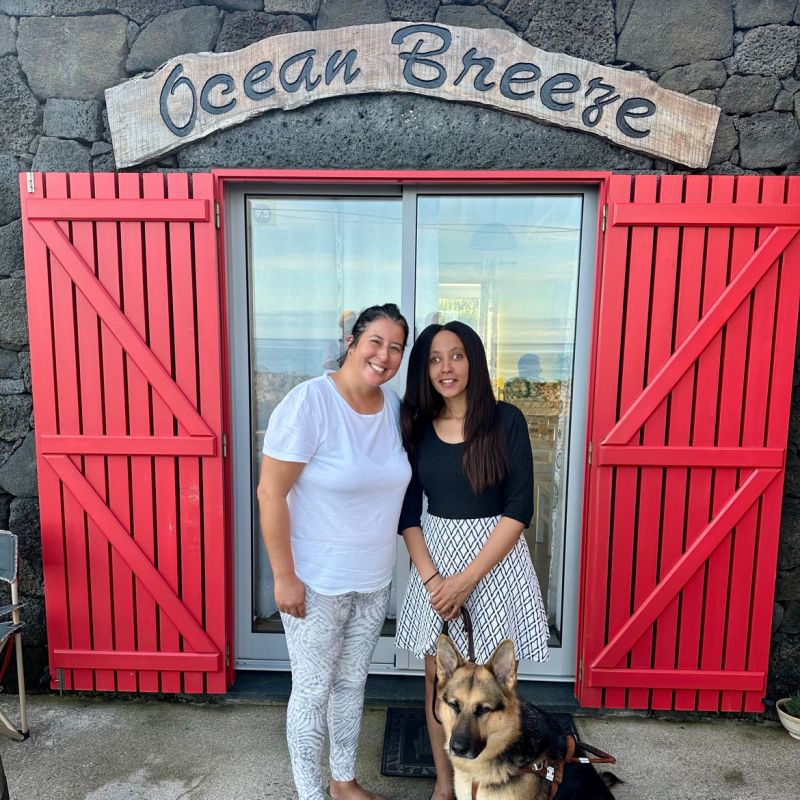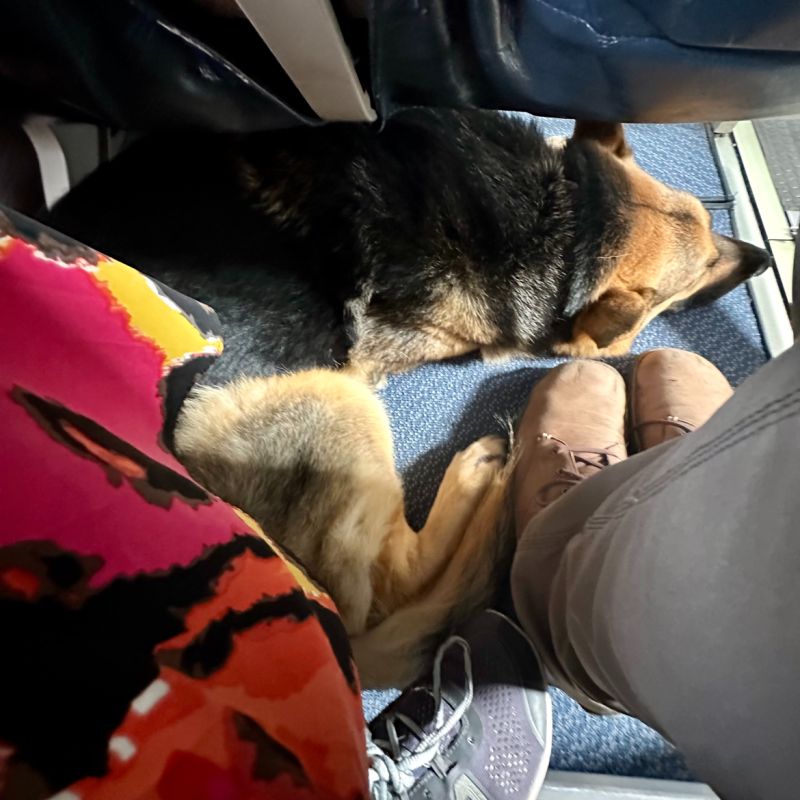American Sign Language (ASL) is different from Mexican Sign Language (LSM). A patient & gifted Deaf LSM instructor, Yahir Alejandro taught me these signs. Will you, too, learn LSM or your local sign language?
For more from Yahir, follow him on Instagram @YahirAlejandroRM.
Video description: Yahir is a young, sighted, Deaf man, and Haben is a Deafblind woman in her thirties. She has her left hand over Yahir’s right hand at the beginning of the video and near the end to feel his signs.
Yahir signs and Haben voices: Uno, dos, tres.
Both sign first in American Sign Language, then in Mexican Sign Language while Haben voices: Hello. Hola. Good morning. Buenos días. Good afternoon. Buenas tardes. Good night. Buenas noches.
Haben signs to Yahir while voicing: Thank you. Gracias.
Yahir signs to Haben while she voices: You’re welcome. De nada.
Yahir signs to the camera (Haben still voicing): You wanna learn LSM? Follow me! Para aprender más LSM, sígueme.
The video ends with both of us smiling and applauding.
